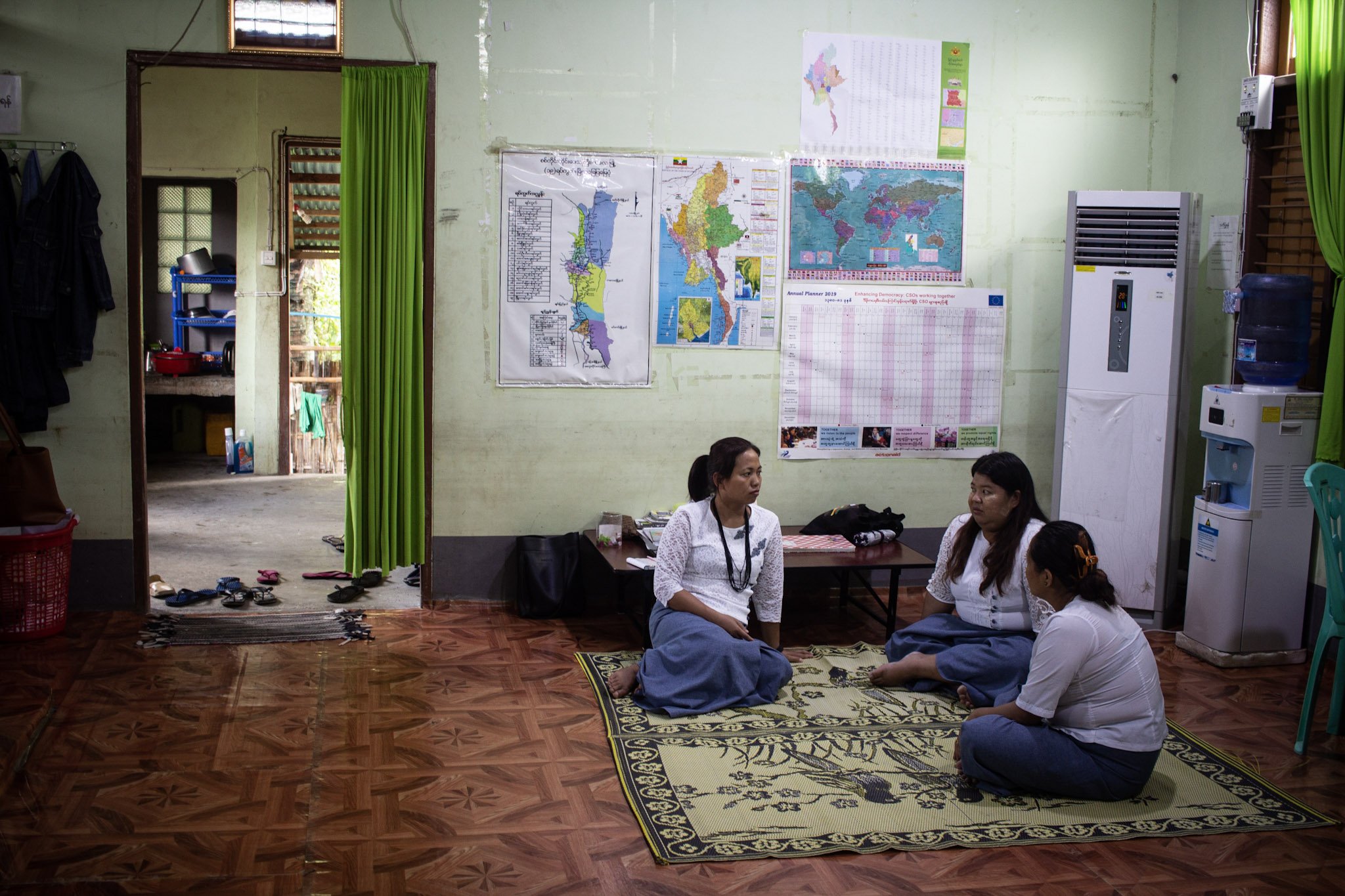
Role: Communications Manager at Paung Sie Facility (PSF), funded by Nordic, Australian, and UK governments
Timeline: 1 year (April 2019-April 2020)
Problem: PSF needs to understand and measure the impact of our local beneficiaries in order to clarify specific stories of impact to share with funders and the international peacebuilding community
Approach: Conduct community-led participatory research in conflict-affected areas to understand the situation on the ground from all possible perspectives. Consult academic researchers and local partners, so that PSF can allocate funding toward women-, youth-, and minority-led organizations that are most beneficial to fostering social cohesion in diverse communities.
Community-led participatory research in Myanmar
Developing a new reporting and storytelling strategy that integrated with Monitoring, Evaluation, and Learning involved the following:
Participants: Leaders of Women for Justice (and local beneficiaries)
Objective: Measure the impact of PSF projects in order to better inform future programming and reporting
Research method: In-depth interviews and ethnography in Chin State with Women for Justice team
“There is a lack of awareness. There is a sense that women are weak, so men can do as they please. Children are afraid to speak up. Laws are biased and do not protect women.”
— Women for Justice
“I walked home around midnight and cried a lot. My father was ready to kill the perpetrator, but our mother insisted on we wait until morning to resolve the problem. It was so painful.”
— Survivor of child sexual abuse
Results
The example above was just one of many stories collected as part of PSF’s storytelling framework. Overall, my work at PSF can be summed up into three main forms of impact.
Impact for Monitoring & Evaluation
Based on ethnographic interviews with local partners, I built a robust reporting and storytelling system that involved sourcing photo, video, and narrative produced by field staff and local beneficiaries.
Supporting the local beneficiaries
In-depth interviews, surveys, and participatory research led to understanding the needs of our local beneficiaries, so we could meet those specific needs by hiring experts in gender, peace, and security (GPS) to lead capacity building training.
Social Cohesion Working Group
Restructured the Social Cohesion Working Group monthly meeting to better meet the specific needs of community partners in Yangon and Southeast Asia working in social cohesion, GPS, and peace and conflict issues.

